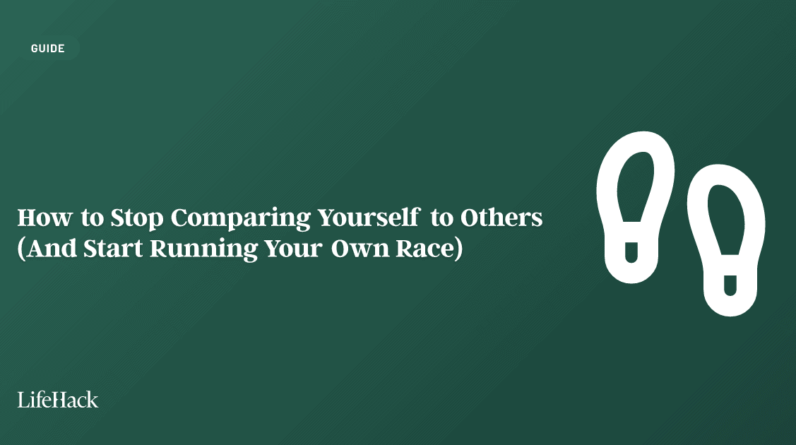
Humans are holistic beings, and multiple dimensions shape and influence who we are.
Wellness is a multidimensional concept that encompasses various aspects of a person’s life and overall well-being. Taking care of ourselves requires us to work on multiple aspects. And this helps us achieve a well-balanced system that many of us strive to have.
Wellness in general has been widely spoken and written about but the different dimensions are underexplored. We tend to know a lot regarding how we can improve our wellness but we know little about the various aspects or dimensions that make us whole.
This article explores multiple dimensions of wellness and how we can improve them to achieve an overall state of advanced wellness.
The 5 Important Areas of Wellness You Need to Balance
Physical Wellness
Physical wellness refers to the overall health and well-being of your body.
It involves various factors and habits that contribute to your physical health and fitness. Maintaining physical wellness is essential for leading a healthy and fulfilling life. Some key aspects of physical wellness include:
- Regular exercise
- Balanced diet
- Sleep management
- Regular health checkups
- Adequate sleep
- Hydration
- Maintaining a healthy weight
- Proper hydration
- Avoiding harmful habits such as smoking or excessive alcohol consumption
Emotional Wellness
Emotional wellness involves understanding, accepting, effectively managing, and appropriately expressing one’s emotions, as well as developing healthy strategies for dealing with the ups and downs of life.
It also includes how we successfully and effectively deal with emotional differences we might experience.
Emotional wellness is an essential component of overall well-being and can have a significant impact on physical health, productivity, and the general quality of life. It’s a lifelong journey that requires self-reflection, self-care, and ongoing personal growth to maintain and enhance.
Aspects of emotional wellness include:
- Self-awareness
- Self-love
- Stress management
- Emotional regulation
- Maintaining rewarding relationships
- Self-compassion
- Seeking help when needed
Mental Wellness
Mental wellness encompasses cognitive and psychological well-being. It involves having a positive, yet realistic outlook on life.
Mental wellness refers to a state of well-being where an individual can effectively cope with the normal stresses of life, work productively, maintain positive relationships, make meaningful contributions to their community, and generally lead a fulfilling and balanced life.
It encompasses emotional, psychological, and social well-being and is a crucial aspect of overall health.
Here are some key aspects of mental wellness:
- Emotional resilience
- Self-awareness
- Positive self-esteem
- Stress management
- Physical wellbeing
- Respect for boundaries
- Mindfulness and self care
It’s important to note that mental wellness is not the absence of mental health challenges or illnesses. Many people experience mental health difficulties at various points in their lives, and seeking help when needed is a sign of strength and self-care.
Additionally, mental wellness is a lifelong journey that requires ongoing effort and attention to maintain and improve one’s mental health.
Intellectual Wellness
This is probably my favorite.
Intellectual wellness involves continuously engaging in activities that stimulate your mind, promote learning, and encourage personal growth. It can include pursuing education, hobbies, and lifelong learning.
It involves engaging in activities that stimulate mental growth, critical thinking, creativity, and a lifelong pursuit of knowledge. Intellectual wellness goes beyond formal education and encompasses various aspects of intellectual development.
Here are some key components of intellectual wellness:
- Continuous learning
- Critical thinking
- Creativity
- Intellectual curiosity
- Time management
- Problem solving
- Cultural engagement
- Goal setting
- Mindfulness and mental health
Intellectual Wellness: How Healthy is Yours & Why It’s Important→
Financial Wellness
Financial wellness refers to a state of overall well-being in which an individual has control over their financial situation and can confidently meet their current and future financial needs and goals.
It involves adjusting and changing financial behaviors to ensure and maintain financial freedom. Financial wellness goes beyond just having a high income or a large savings account and encompasses various aspects of financial health.
Financial wellness involves managing your financial resources effectively, including budgeting, saving, and investing. It aims to reduce financial stress and promote financial security.
Achieving financial wellness typically requires a combination of education, planning, and disciplined financial practices.
Employers, financial institutions, and individuals themselves often seek to improve financial wellness through various programs, resources, and strategies to help individuals achieve financial stability and peace of mind.
- Retirement planning
- Insurance and risk management
- Financial literacy
- Investing
- Debt management
- Savings and emergency funds
- Budgeting and spending
Finances are a big source of stress for many people and understanding how we can achieve financial wellness is essential in improving our general wellness.
You Can Achieve Overall Wellness
Overall wellness as it is typically addressed seems easy to achieve.
But breaking it down into the various dimensions makes it even more simple.
Once we know the various aspects of our lives that we need to work on and how we can work on them, we basically breakdown our wellness into bite sized portions that we can better understand and use to improve ourselves.
These dimensions are interconnected, and a balance among them is essential for holistic well-being.
Individuals may prioritize certain dimensions at different times in their lives and that is absolutely fine. Moreover, some dimensions might be of more importance than others to different people at various stages of life. The goal is to not entirely neglect certain aspects.
Achieving wellness involves self-awareness, self-care, and ongoing efforts to improve and maintain each aspect. We are constantly working on ourselves and we need to be kind as we work towards improvement.
Updated from Sep 10, 2023
Photo by Polina Tankilevitch







